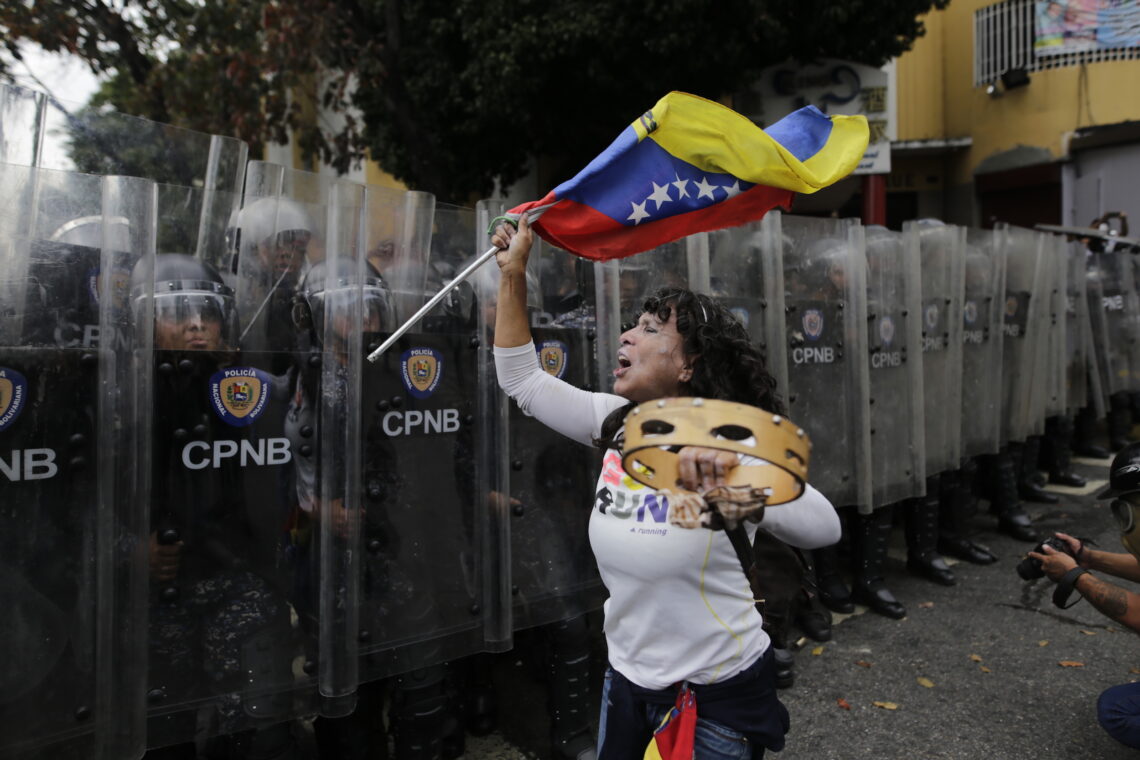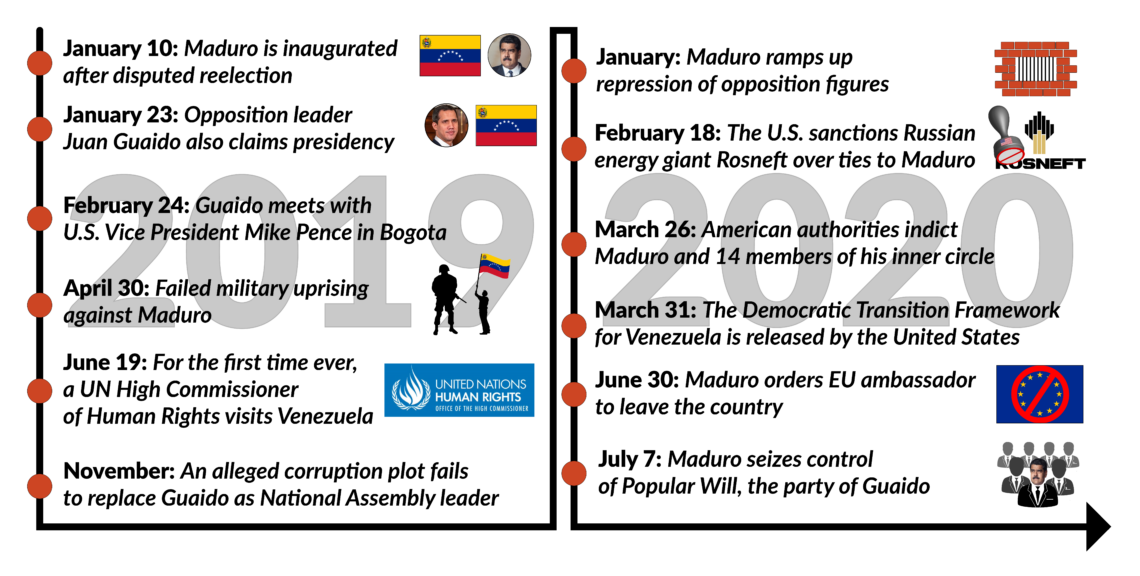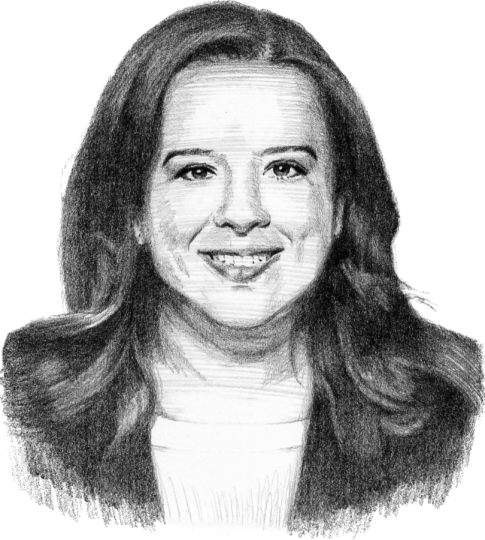What to expect from the U.S. on Venezuela?
With two months to go until the 2020 presidential election, U.S. policy on Venezuela faces new urgency. While the country has been used as a political football for domestic reasons, the crisis in Venezuela has serious consequences for the interests of America.

In a nutshell
- Resolving the Venezuela crisis remains a U.S. consensus
- Changing Democratic party could eventually shift on the issue
- Protracted conflict is the most likely scenario
With two months until the 2020 presidential election in the United States , there is heightened attention on the direction of American policy in Venezuela. While Latin America is generally not at the forefront of U.S. foreign policy, the Trump administration has elevated the Venezuela crisis on its agenda.
At times, undiplomatic messaging from the administration portrays Venezuela as an issue that the conservatives have seized merely for domestic politics. Yet that ignores the destabilizing impact Venezuela’s crisis poses to the region, and to U.S. interests and those of its international partners. Nicolas Maduro and his inner circle have turned the country into an international hub for drug trafficking and have collaborated with regional terrorist organizations.
According to Human Rights Watch, Mr. Maduro’s officials are allegedly behind extrajudicial killings, forced disappearances, and arbitrary detentions of political opponents. Because of their corruption and mismanagement of the economy, Venezuelans are experiencing Latin America’s worst humanitarian and refugee crisis, now worsened by the Covid-19 pandemic.
Within the U.S., there is mainstream bipartisan support for U.S. leadership on these issues. Of course, Democrats and Republicans may occasionally bicker over certain policy tactics, but remain in agreement on the principle of restoring Venezuela’s democracy. Much of this is because the Trump administration’s Venezuela policy defies the conventional understanding of the president’s “America First” foreign policy.
U.S. administration officials have consistently said that a political solution is the desired outcome.
The last few years of U.S. policy have been grounded in working through multilateral institutions and with international partners. Latin American countries most afflicted by the destabilizing situation are at the forefront of the region’s response. Corruption, human rights violations and the undermining of democracy are the main reasons why the U.S. has implemented sanctions against members of the Venezuelan regime. Certain impolitic comments might give the impression that a “military option” is in the works, yet administration officials have consistently said that a political solution is the desired outcome.
Early 2020 was a tumultuous time in Venezuela, and an active one in U.S. policy. January 23 marked the one-year anniversary of when Juan Guaido – who many governments consider the rightful leader of Venezuela – took office as president. As that date approached, President Maduro ramped up repression of Venezuelan opposition figures. In February and March, the U.S. imposed sanctions on subsidiaries of Russian energy company Rosneft, which was acting as an intermediary for Venezuelan state oil company PDVSA. In late March, the U.S. Department of Justice unveiled sealed indictments against Mr. Maduro and 14 members of his inner circle, charging them with narco-terrorism, corruption, and drug trafficking. Several days later, the U.S. State Department released a proposal for a “Democratic Transition Framework for Venezuela” to resolve the domestic political impasse.
While light on oversight mechanisms and implementation details, the plan provides a step-by-step guide for a transition – including elections and the lifting of U.S. sanctions. It makes sense to provide a practicable framework, so that regime officials know there is an off-ramp, but there is no indication of progress on this front.
Scenarios
Will the U.S. election impact Trump’s Venezuela policy?
In the immediate future, there should be no expectation that the Trump administration will change course on U.S. sanctions policy on Venezuela. The roots of Venezuela’s financial collapse and humanitarian crisis occurred long before the U.S.’s financial sanctions. Rather, Mr. Maduro’s corruption, purposeful neglect, and mismanagement of the economy directly contributed to Venezuela’s humanitarian crisis.
Venezuela is now Latin America’s most impoverished nation, as ranked by a recent survey published by the Universidad Catolica Andres Bello ENCOVI project. Conducted before the coronavirus pandemic, the 2020 study found that 96 percent of Venezuelans cannot afford basic foods, goods and services. Previous ENCOVI surveys found a decline in living standards as far back as 2012.
The roots of Venezuela’s financial collapse and humanitarian crisis occurred long before American sanctions
As for the future of U.S. humanitarian assistance to Venezuela, we should anticipate that the Trump administration will continue abiding by international principles discouraging the politicization of foreign aid. This means the U.S. will continue working through multilateral institutions and international organizations rather than providing Venezuela with foreign aid directly. The regime has traditionally prioritized critical goods and scarce products for members of Mr. Maduro’s inner circle and political allies. The Covid-19 pandemic has only reinforced this practice, with regime officials given priority treatment in private hospitals.
Will a Democratic administration shift on Venezuela policy?
Looking past the election, excluding the radical elements of both parties, resolving Venezuela’s crisis has largely retained bipartisan consensus in the U.S.
A vast majority of Republicans and Democrats in the U.S. Congress agree that a peaceful, negotiated solution is in both Venezuela and the U.S.’s interest, and that Juan Guaido is Venezuela’s legitimate interim president. There is disagreement between the left and right on certain financial sanctions and Democrats have pressed the administration to provide relief to Venezuelans in the U.S. under the Temporary Protected Status policy.
However, observers should be aware of the shifting elements within the Democratic Party and how they could contribute to a potential change in the mainstream party view on foreign policy. The Chairman of the House Foreign Affairs committee, the Democrat Elliott Engel, recently lost in a primary election to a left-wing firebrand. It is just the latest upset in a trend of establishment, middle-of-the-road Democrats losing influence or seats to ideologues.

After it became clear that former Vice President Joe Biden would win the Democrats’ presidential primary, his campaign formed a task force with his former opponent, Vermont Senator Bernie Sanders. Months after the two disagreed on Venezuela, and after Mr. Sanders’ position on the issue was denounced by many Democrats, the Biden campaign ended up adopting aspects of his former rival’s more radical posture. Considering Mr. Sanders’ major influence on the left, his perspective on Venezuela could start to publicly clash with mainstream Democratic policy.
Prospects for Venezuela’s military turning on Maduro
As for Venezuela itself, its immediate future scenarios look grim. For a democratic transition to occur, the armed forces must support the political actors – and for the time being, they remain in lockstep behind President Maduro.
The military’s brass benefits from the existing system. Hugo Chavez and Mr. Maduro put the military in control of key sectors of the economy to buy off their loyalty, transforming the armed services into financial dependents. The military runs various state-owned enterprises like the oil sector, mining or customs, and they also have a seat at the table in the Maduro cabinet. Their influence transcends all levers of power throughout the country and allows for extensive graft and corruption.
A transition to a democratic government would force them to become accountable for their future actions and potentially their past behaviors and abuses. Even for military officials who want a free Venezuela, the extensive surveillance by Cuban counterintelligence has likely prevented action against Mr. Maduro.
Could the opposition union come apart?
The cohesion of the opposition parties is also a key factor. In the past, they were unable to capitalize on President Maduro’s unpopularity and come together. Their ability to organize and vote for Mr. Guaido as their National Assembly president, which subsequently led to his interim presidency, is a key indicator of their maturity. By virtue of leading an unaccountable regime, Mr. Maduro wields power indiscriminately.
Looking ahead at the National Assembly elections in December 2020, we should expect further authoritarian power grabs. Juan Guaido’s legitimacy as the interim president stems from his role as the head of the National Assembly, the only legitimate body in Venezuela’s government. Mr. Maduro’s Supreme Court has taken over the three leading opposition parties, including his rival, and replaced their leadership with loyalists. As of this writing, the opposition will boycott the election, but their next steps are unknown. Maintaining a united and effective front under these conditions will prove difficult.
Protracted conflict as the most likely scenario
The international community must increasingly be prepared for a prolonged political crisis. As such, it must be pragmatic and measure expectations for change. While Venezuela is a failed state by all definitions, the regime’s ability to repress political opponents and weather the crisis decreases the likelihood that President Maduro and his clique will leave power peacefully. Financial sanctions were meant to limit their options, yet they have brought the president closer to rogue actors. His inner circle has increasingly relied upon illicit activity to fund themselves. The involvement of geopolitical actors with varied interests and capabilities has turned Venezuela into a proxy conflict, significantly complicating matters.








